 Your new post is loading...

|
Scooped by
Farid Mheir
|
The technical potential for automation differs dramatically across sectors and activities.

|
Scooped by
Farid Mheir
|
The Internet of Things, artificial intelligence, droid delivery systems, mobile wallets and in-store gardens should be on every grocer’s radar in the year ahead.

|
Scooped by
Farid Mheir
|
Selling groceries is an increasingly competitive business. What are retailers doing to stay in the game?

|
Scooped by
Farid Mheir
|
As B2B ecommerce matures and evolves, we’re beginning to see businesses transition beyond traditional commerce channels (online and offline). One area where we’ll see rapid innovation is in “browserless” commerce, which is quite simply removing the traditional browser interface from a range of purchasing / service scenarios.

|
Scooped by
Farid Mheir
|
Unleash the bots! Automation has emerged as a critical issue in the US following a 2016 election that focused largely on jobs and plans to save them. Though a significant amount of attention has been directed towards autonomous driving as a potential job killer, specifically for long-haul trucking, delivery robots appear poised to go mainstream much sooner.

|
Scooped by
Farid Mheir
|
When it comes to groceries, most Chinese still rely on their neighborhood markets. But that’s starting to change as Alibaba and JD.com use a new form of courier service that works like the Uber of delivery.

|
Scooped by
Farid Mheir
|
- 70% of retail decision makers globally are ready to adopt the Internet of Things to improve customer experiences.
- 73% of retailers rate managing big data as important or business-critical to their operations.
- 78% of retailers say it is important or business-critical to integrate e-commerce and in-store experiences, so an omnichannel experience is delivered to every customer.
- 87% of retailers will deploy mobile point-of-sale (MPOS) devices by 2021, enabling them to scan and accept credit or debit payments anywhere in the store.
- 90% of retailers will implement buy online, pickup in store by 2021.

|
Scooped by
Farid Mheir
|
Popular ideas about the working class are woefully out of date. Here are nine people who tell a truer story of what the American work force does today — and will do tomorrow.

|
Scooped by
Farid Mheir
|
The Future of Personalization white paper looks at how retailers can deliver a more personalized, one-on-one online shopping experience. Specifically, the paper looks at the retail landscape and the challenges retailers must overcome in order to achieve personalization, such as understanding the individual consumer, including their style, size and brand affinities as well as external and internal factors that affect their decision making.

|
Scooped by
Farid Mheir
|
Starbucks is facing long lines and delays in stores, and the CEO hasn't offered any specific solutions for restoring service.

|
Scooped by
Farid Mheir
|
Ecommerce continues to make gains among consumers, with more people buying products online than ever before. Indeed, eMarketer recently predicted that worldwide ecommerce sales would total $1.915 trillion in 2016, with $423.34 billion of that coming from North America. And the company forecast double-digit retail ecommerce growth through 2020. Grocery and fresh foods Health and wellness Pet products Artisanal/handcrafted goods Sporting goods Virtual reality

|
Scooped by
Farid Mheir
|
This year’s forecasts will highlight the trends & issues that we think will have major impacts on the retail industry over the coming 12 months.

|
Scooped by
Farid Mheir
|
The Artificial Intelligence Revolution isn’t around the corner—it’s here. A common remark is that as soon as some new form of AI is possible, it’s no longer AI, it’s just what computers “do”. And while we won’t notice most of AI’s effects in our world, there will be visible signs as digital technology is infused with AI. Through the lens of commerce, it’s easier to see AI’s deep effects as progress continues. Here are a few examples.

|
Scooped by
Farid Mheir
|
Rethinking the Value Chain: New Realities in Collaborative Business – the premise of this report suggests that the industry’s traditional approach to the value chain, whereby product and information flow linearly and sequentially from supplier to manufacturer to retailer to consumer – is no longer sufficient. The findings further point out that value chains cannot keep pace with the new reality of global changes in consumer behaviour, business innovation, demographics and economics. As a result there is a need to lead a shift away from value chains towards more collaborative value networks. The report takes a closer look at the trends impacting the industry while presenting the strategic areas of focus for concrete actions.

|
Scooped by
Farid Mheir
|
Generation Z (Gen Z), born after 2000, is the first generation not to have known life without technologies and services such as smartphones, iPads, Facebook, Instagram and WhatsApp. Exposure to these technologies and services has influenced this demographic’s broader expectations and behaviors. We have identified three defining attributes of Gen Zers: - Gen Zers tend to attach great importance to personal appearance, in large part because they are the first generation to grow up “in public” online, i.e., documenting their lives on social media.
- The pressures presented by social media are encouraging Gen Zers to spend on leisure services, such as vacations, dining out and going out. This is what we call “the Instagram effect.”
- The on-demand economy, ranging from video-on-demand services such as Netflix to dine-on-demand apps such as UberEATS, is making Gen Z the most demanding, least patient generation ever.
US consumers spent $829.5 billion on Gen Zers in 2015, we estimate. Around $66 billion of that total was spent on discretionary categories, while most of it was spent on essential or semi discretionary categories such as housing, food, clothing and transportation.
Generation Z (Gen Z), born after 2000, is the first generation not to have known life without technologies and services such as smartphones, iPads, Facebook, Instagram and WhatsApp. Exposure to these technologies and services has influenced this demographic’s broader expectations and behaviors. We have identified three defining attributes of Gen Zers: - Gen Zers tend to attach great importance to personal appearance, in large part because they are the first generation to grow up “in public” online, i.e., documenting their lives on social media.
- The pressures presented by social media are encouraging Gen Zers to spend on leisure services, such as vacations, dining out and going out. This is what we call “the Instagram effect.”
- The on-demand economy, ranging from video-on-demand services such as Netflix to dine-on-demand apps such as UberEATS, is making Gen Z the most demanding, least patient generation ever.
US consumers spent $829.5 billion on Gen Zers in 2015, we estimate. Around $66 billion of that total was spent on discretionary categories, while most of it was spent on essential or semi discretionary categories such as housing, food, clothing and transportation.

|
Scooped by
Farid Mheir
|
The way people shop has completely changed over the past five years. A large part of this change in behavior has been driven by online access to information. Shoppers now have easy access to more product information than ever before. Yet as the modern buying experience has changed dramatically, the in-store experience at most retailers has remained frozen in time. In particular, most sales associates do not have tools at their disposal that might allow them to keep up with the information-empowered shoppers they now serve.
The way people shop has completely changed over the past five years. A large part of this change in behavior has been driven by online access to information. Shoppers now have easy access to more product information than ever before. Yet as the modern buying experience has changed dramatically, the in-store experience at most retailers has remained frozen in time. In particular, most sales associates do not have tools at their disposal that might allow them to keep up with the information-empowered shoppers they now serve.

|
Scooped by
Farid Mheir
|
Floodwatch is a Chrome extension that tracks the ads you see as you browse the internet. It offers tools to help you understand both the volume and the types of ads you’re being served during the course of normal browsing, with the goal of increasing awareness of how advertisers track your browsing behavior, build their version of your online identity, and target their ads to you as an individual. We want to assemble the largest amount of advertising data we can— and then not give it to the advertisers.

|
Scooped by
Farid Mheir
|
Amazon is building an app that connects truck drivers with shippers, getting itself into the $800 billion trucking industry.

|
Scooped by
Farid Mheir
|
This transformation echoes the impact of Facebook on the media: there is a dramatic leveling of the playing field. The advantages of scale that guaranteed success in the post-war era just don’t matter very much when advertising is cheap, shelf space is infinite, and shipping is free. And, just as Facebook’s breakdown of the media broke down the political parties, Amazon’s break-down of physical retail will have its own knock-on effects: carrying household supplies is a major reason to own a car, for example, which means Amazon is a laying the foundation for a service like Uber to shift from being a car supplement to a full-on substitution.

|
Scooped by
Farid Mheir
|
New research shows that 66% of US adults aren't willing to pay more for groceries, even if it means skipping the checkout line

|
Scooped by
Farid Mheir
|
A motion graphic showing how Amazon’s new shopping experience Amazon Go will work. Simply scan in, take what you want and “Go”.

|
Scooped by
Farid Mheir
|
As we pass 2.5bn smartphones on earth and head towards 5bn, and mobile moves from creation to deployment, the questions change. What's the state of the smartphone, machine learning and 'GAFA', and what can we build as we stand on the shoulders of giants?

|
Scooped by
Farid Mheir
|
Subscription e-commerce uses AI to offer personalized, low cost, convenient products. It’s working.
|

Curated by Farid Mheir
Get every post weekly in your inbox by registering here: http://fmcs.digital/newsletter-signup/
|
 Your new post is loading...
Your new post is loading...










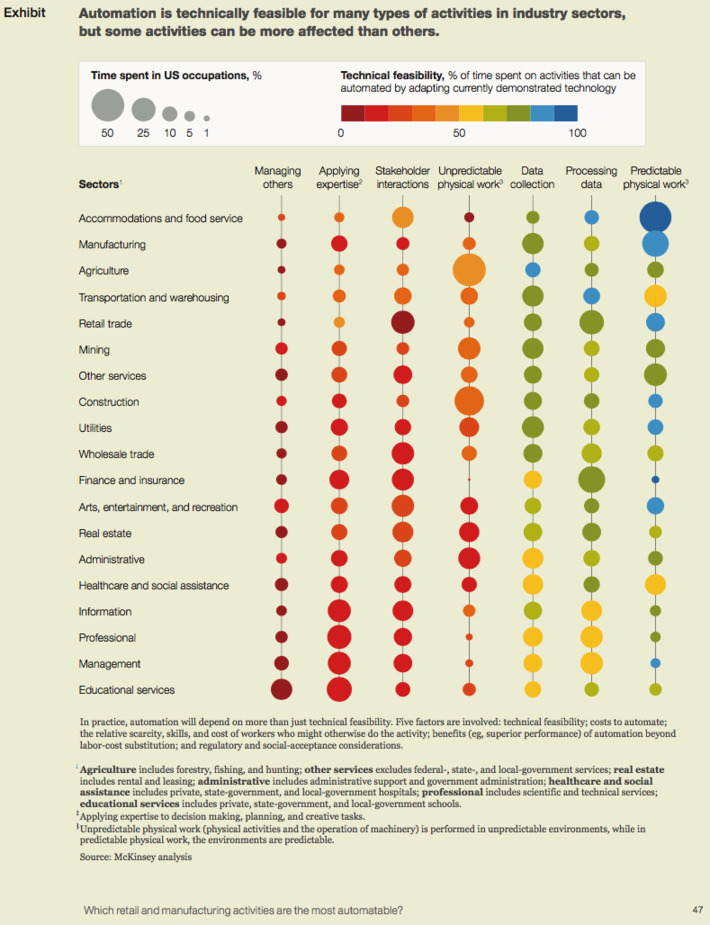

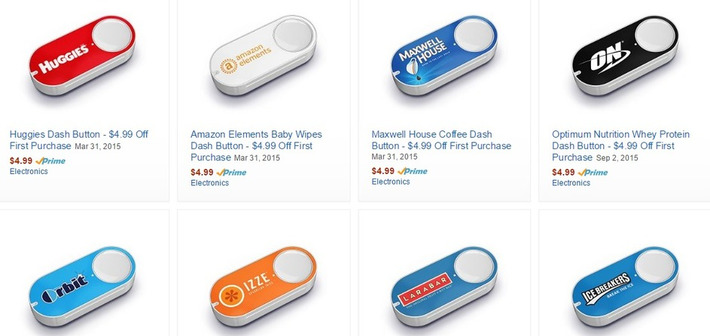


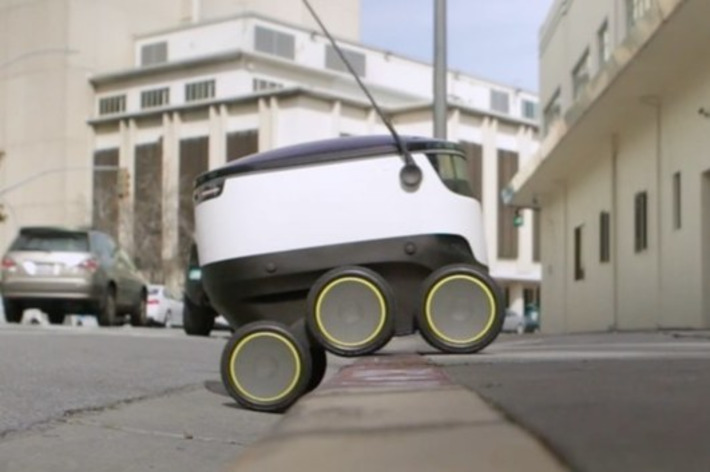
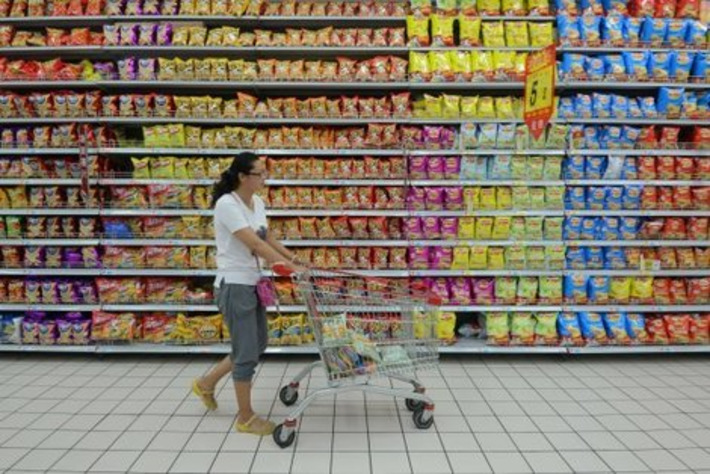
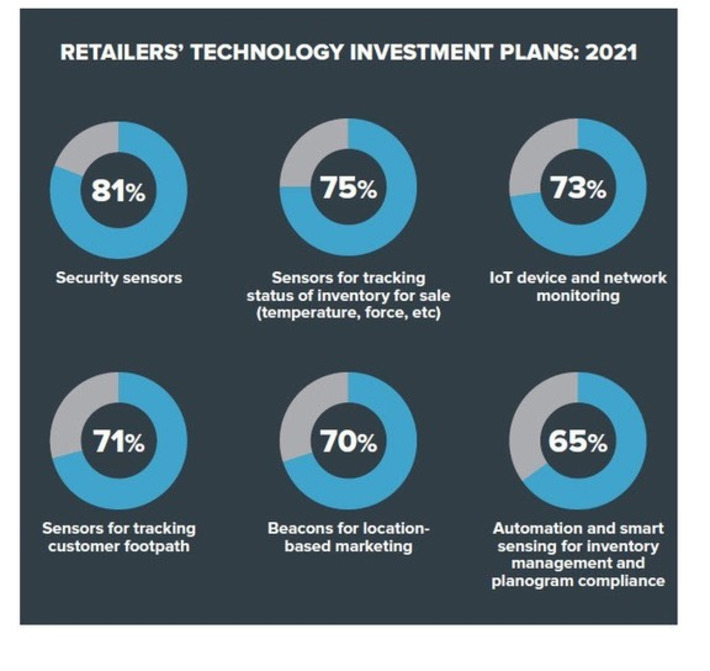

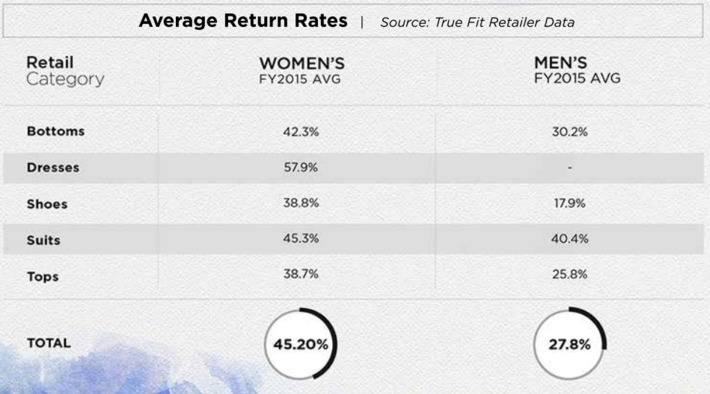
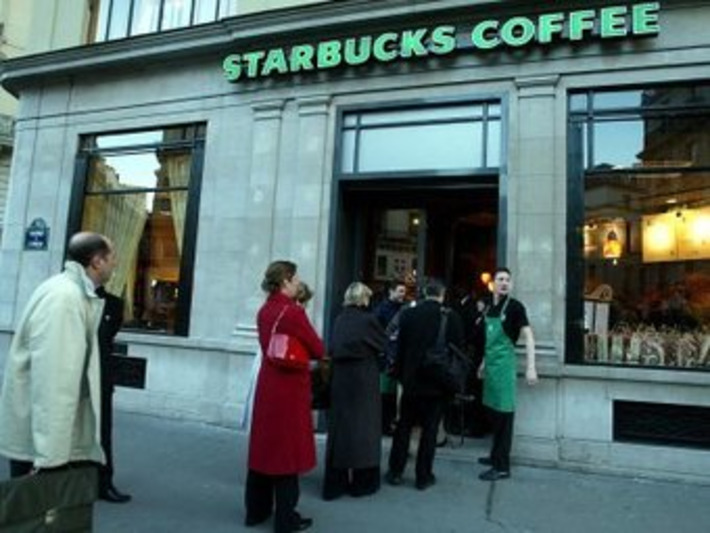
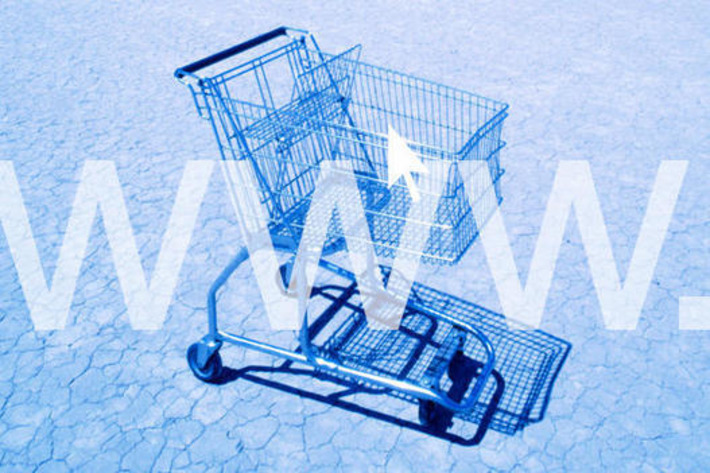

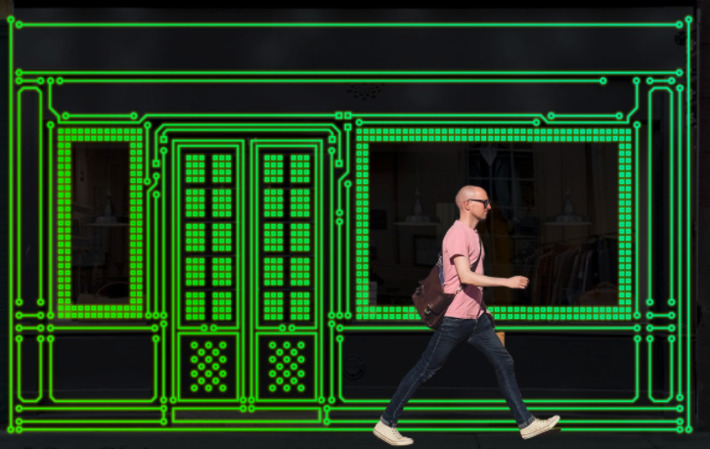

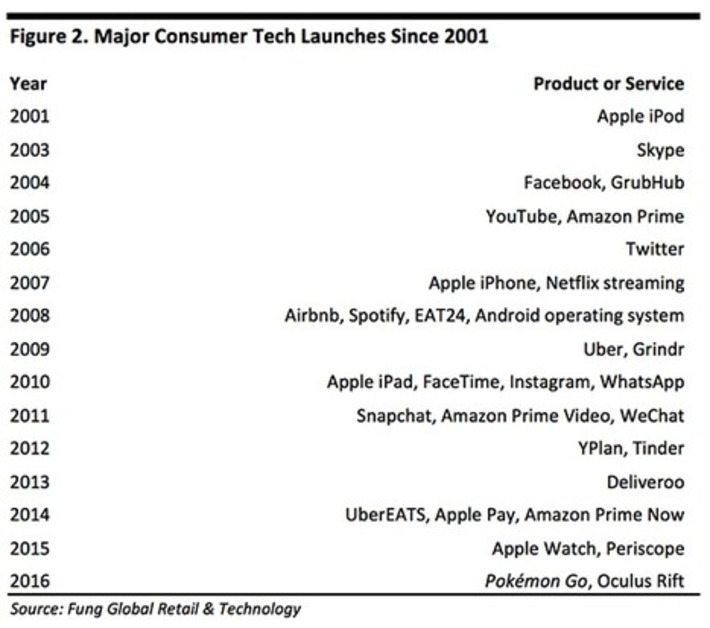
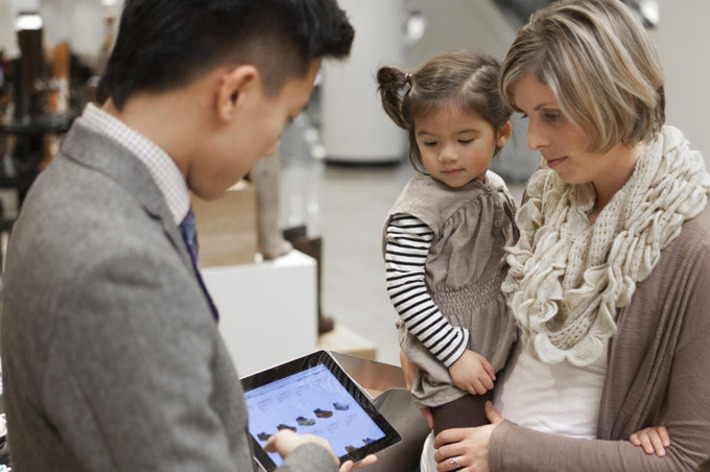

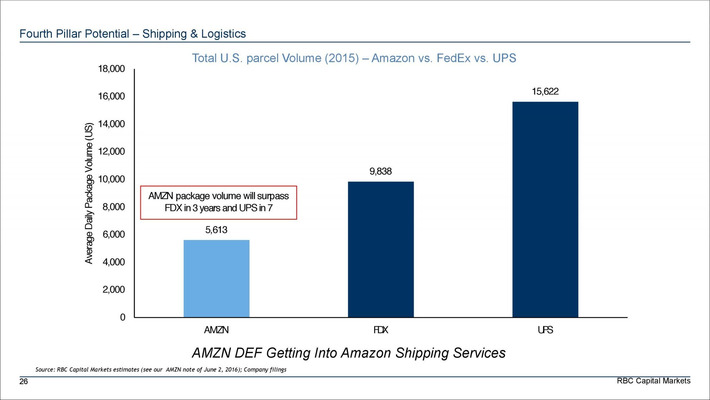


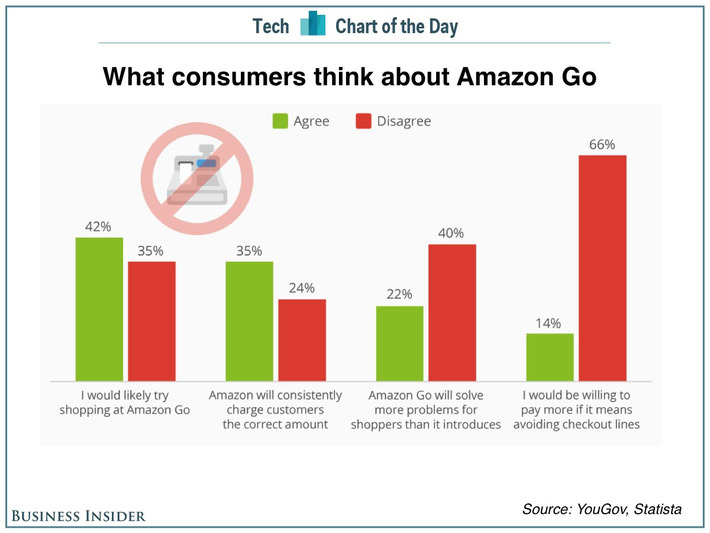

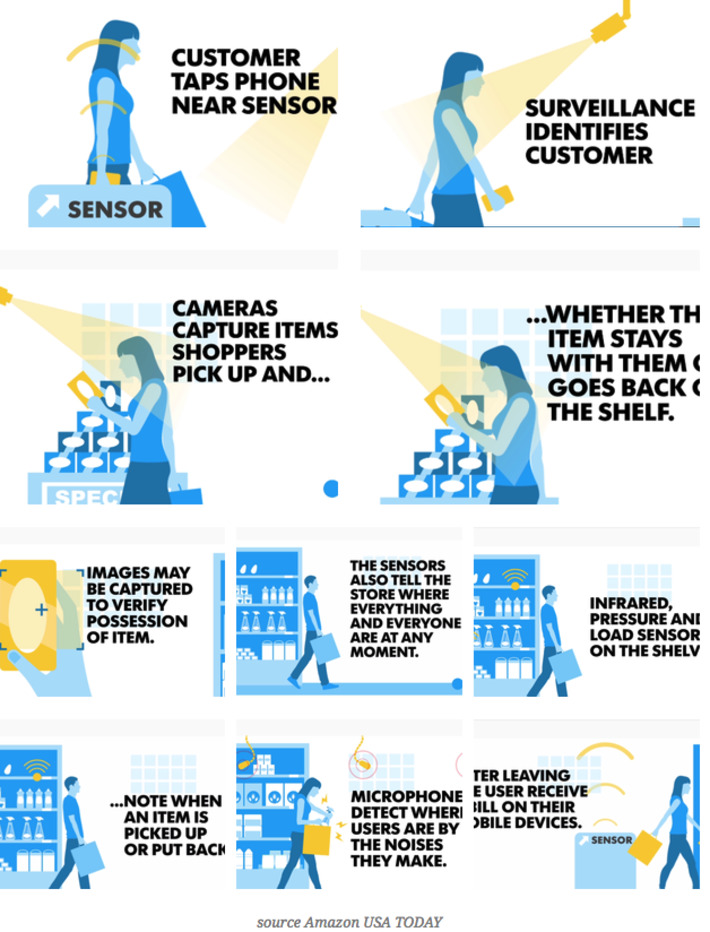
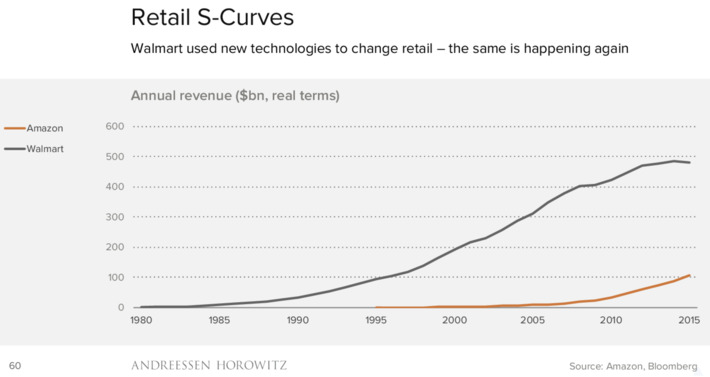










WHY THIS IS IMPORTANT
We all work so we should all be aware of this trend. For those of us that create strategy for others, this is essential to consider as an underlying trend.